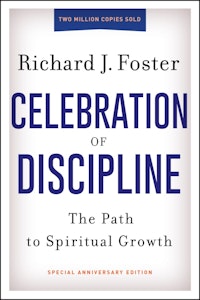 Excerpt from Celebration of Discipline
Excerpt from Celebration of Discipline
To worship is to experience Reality, to touch Life. It is to know, to feel, to experience the resurrected Christ in the midst of the gathered community. It is a breaking into the Shekinah of God, or better yet, being invaded by the Shekinah of God.1
God is actively seeking worshipers. Jesus declares, “The true worshipers will worship the Father in spirit and truth, for such the Father seeks to worship him” (John 4: 23, [italics added]). It is God who seeks, draws, persuades. Worship is the human response to the divine initiative. In Genesis God walked in the garden, seeking out Adam and Eve. In the crucifixion Jesus drew men and women to himself (John 12: 32). Scripture is replete with examples of God’s efforts to initiate, restore, and maintain fellowship with his children. God is like the father of the prodigal who upon seeing his son a long way off, rushed to welcome him home.
Worship is our response to the overtures of love from the heart of the Father. Its central reality is found “in spirit and truth.” It is kindled within us only when the Spirit of God touches our human spirit. Forms and rituals do not produce worship, nor does the disuse of forms and rituals. We can use all the right techniques and methods, we can have the best possible liturgy, but we have not worshiped the Lord until Spirit touches spirit. The words of the chorus, “Set my spirit free that I may worship Thee,” reveal the basis of worship. Until God touches and frees our spirit we cannot enter this realm. Singing, praying, praising all may lead to worship, but worship is more than any of them. Our spirit must be ignited by the divine fire.
As a result, we need not be overly concerned with the question of a correct form for worship. The issue of high liturgy or low liturgy, this form or that form is peripheral rather than central. We are encouraged in this perception when we realize that nowhere does the New Testament prescribe a particular form for worship. In fact, what we find is a freedom that is incredible for people with such deep roots in the synagogue liturgical system. They had the reality. When Spirit touches spirit the issue of forms is wholly secondary.
To say that forms are secondary is not to say that they are irrelevant. As long as we are finite human beings we must have forms. We must have “wineskins” that will embody our experience of worship. But the forms are not the worship; they only lead us into the worship. We are free in Christ to use whatever forms will enhance our worship, and if any form hinders us from experiencing the living Christ— too bad for the form.
Foster, Richard J. Celebration of Discipline: The Path To Spiritual Growth (pp. 158 – 159). HarperCollins. Kindle Edition.
[1] “Shekinah” means the glory or the radiance of God dwelling in the midst of his people. It denotes the immediate Presence of God as opposed to a God who is abstract or aloof.


